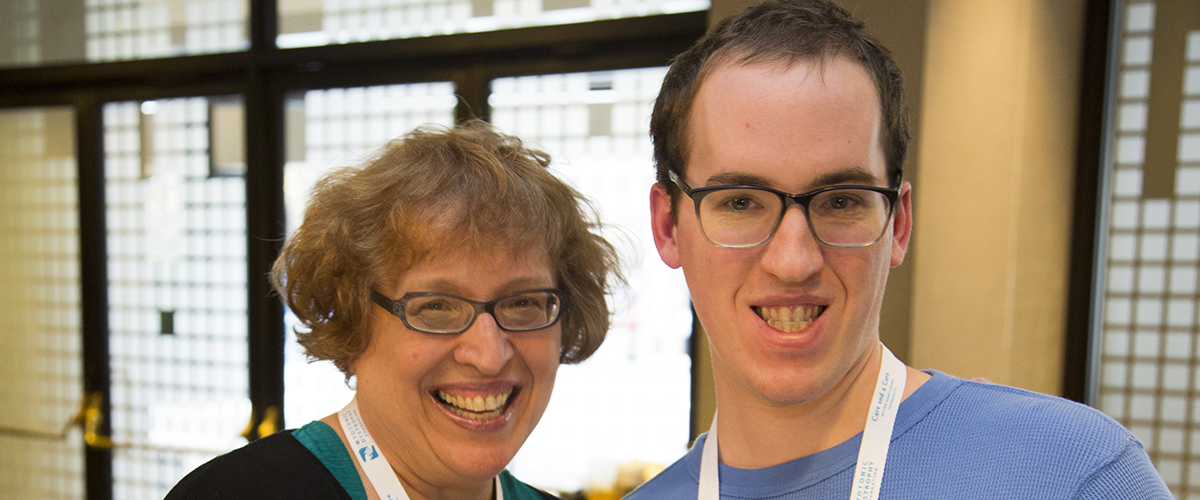
National Family Caregivers Month is Here!
Caregivers are in many ways the backbone and the heart of the myotonic dystrophy community. In honor of MDF's community caregivers and National Family Caregivers Month, this month's family story focuses on the experiences and wisdom of one DM caregiver. Meet Larry Lord, architect and community volunteer living in Atlanta, Georgia, who is a single father of two grown sons living with childhood-onset DM.
Larry Lord, DM Caregiver
Though semi-retired as an architect, Larry's days are very full juggling work, his myriad community service and volunteer activities and care for his oldest son Hunter, 38, who lives with him. Larry's younger son Ashby, 33, lives in an apartment nearby. Ashby is the more independent of the two, but both sons hold part-time jobs at local nonprofit organizations where Larry volunteers. The sons are both financially dependent on Larry.
Larry's wife Shannon, who was founding Chair of the Myotonic Dystrophy Foundation's Board of Directors and the driving force behind the creation of MDF, passed away last year. Shannon's passing was unexpected, and Larry has worked hard to reestablish a sense of balance and find much-needed support in his life.
Finding Support and Advice
Adjusting to life as a single father has taken some time. Larry explains that advice from a senior living consultant helped him learn how to begin finding balance and manage daily living. She advised him to keep a minute-by-minute list of every activity he performed during the week. He then divided the list into items he felt he absolutely needed to handle himself and ones for which he could ask for help. "It takes a while to realize that you don't have to do it all," he explained. "Over time you can start to think of some things differently and realize that maybe you could get somebody to help do this."
As a result of this strategy, Larry has made some adjustments, including hiring his neighbor to help out. She comes daily after Larry leaves for the office or volunteer work to wake up Hunter, prepare his breakfast and take him to work. His son Ashby picks Hunter up from work and takes him to dinner when Larry has to be out of town. Larry also has colleagues from his old firm and colleagues who work with Hunter who have volunteered their help in emergencies.
Leaning on the MDF Community
For Larry, support from the MDF Community has been particularly rewarding. He is pleased to see how the community has evolved since his wife gathered together the first MDF group of families back in 2005. The need for support is ongoing, Larry notes, adding that sharing information and advice is a crucial element he and others should include in their lives.
Larry's local DM support group meets regularly and he receives a call or email about once a month from someone with a question or helpful information. "DM is such a complex, variable disease. I'm not an expert; no one is really an expert. We have to reach out to each other and help one another figure things out as we go."
The support group has been a steady resource and sounding board for Larry as his family life evolves. Caring for Hunter is a process that is constantly changing. Whether searching for ways to increase Hunter's recreational time or managing his increasing leg weakness, Larry says there are multiple topics on which he seeks advice from others.
Taking Care of the Caregiver
While DM caregivers are seldom off duty, Larry says it is critically important that caregivers take care of themselves. In addition to the support group and his wide range of friends, his morning cup of tea and his Sunday visits to church are the times Larry takes to reflect and relax. He notes, "You have to make sure you are strong enough to be the caregiver. When you get on an airplance they tell you, 'In case of emergency, put on your oxygen mask first and then help the person next to you.' If you don't care for yourself, you won't be able to support the ones you love."

